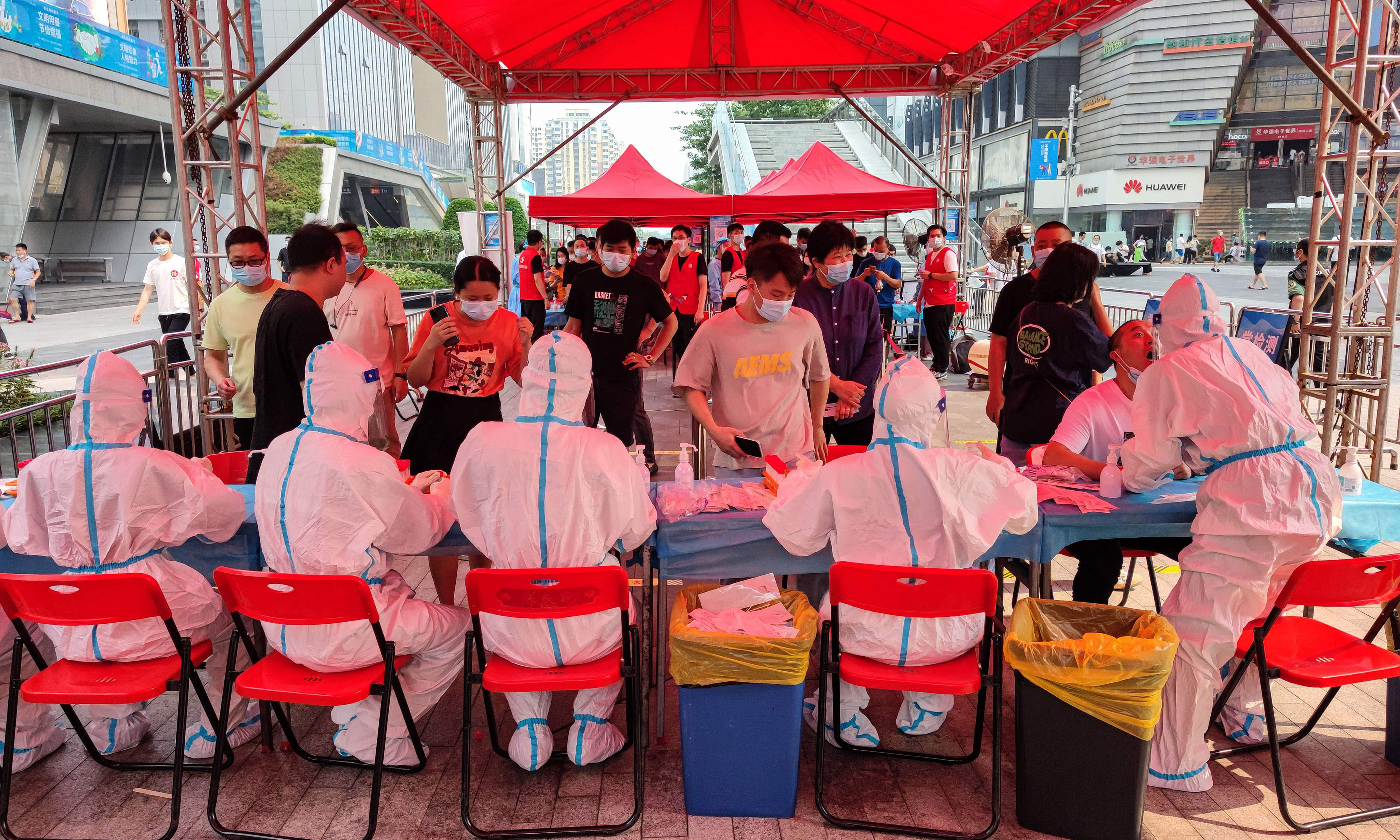BEIJING: China placed all 17 million residents in one of its biggest cities under lockdown yesterday, as virus cases doubled nationwide to nearly 3,400 and anxiety mounted over the resilience of its 'zero-COVID' approach in the face of the worst outbreak in two years. The southern tech hub of Shenzhen told all residents to stay at home as the city struggles to eradicate an Omicron flare-up linked to neighboring virus-ravaged Hong Kong. The lockdown and a suspension of public transport will last until March 20, a city government notice said, adding that it would launch three rounds of mass testing. The move extends an earlier lockdown imposed on the city's central business district. Shenzhen reported 66 new infections yesterday - a fraction of the 32,430 confirmed the same day in Hong Kong.
"If prevention and control is not strengthened in a timely and decisive manner, it could easily become large-scale community transmission," Shenzhen health official Lin Hancheng said at a briefing. The surge in infections across China has also prompted authorities to close schools in Shanghai and lock down multiple northeastern cities, as 18 provinces battle clusters of the Omicron and Delta variants. China, where the virus was first detected in late 2019, has maintained a strict 'zero-COVID' policy enforced with swift lockdowns, travel restrictions and mass testing when clusters have emerged. But the latest flare-up, driven by the highly transmissible Omicron variant and a spike in asymptomatic cases, is testing that approach.
Shanghai has so far been spared a citywide order to stay home, but individual housing compounds were being locked down as the megacity ramped up efforts to contain infections and test suspected close contacts. Jilin - the city at the center of the outbreak in the northeast - was partially locked down Saturday, while residents of Yanji, an urban area of nearly 700,000 bordering North Korea, were also confined to their homes yesterday.
Zhang Yan, a Jilin health commission official, said the response from local authorities had been lacking. "There is insufficient understanding of the characteristics of the Omicron variant... and judgment has been inaccurate," he said at a Sunday press briefing. The neighboring city of Changchun - an industrial base of nine million people - was locked down Friday, while at least three other small cities have been locked down since March 1. The mayor of Jilin and the head of the Changchun health commission were dismissed from their jobs Saturday, state media reported, in a sign of the pressure placed on local authorities to contain virus clusters.
But the strain is showing, with officials increasingly urging softer and more targeted measures, while economists warn tough clampdowns are hurting the economy. Some people in Shanghai housing compounds that have been locked down were told by authorities that the restrictions will last two days. Some schools, businesses, restaurants and malls have also been closed over close-contact fears.
Authorities also said yesterday that people cannot leave or enter Shanghai without a negative test taken in the past 48 hours. "I have friends who I hung out with a few days ago but were suddenly quarantined recently," Shanghai resident Serena Li told AFP. Long lines were seen outside hospitals as people rushed to get tested. "There's no other way. We definitely have to do what the government has arranged," said a data analytics worker surnamed Zhang.
Shenzhen residents told AFP earlier yesterday that they were nervous about the renewed outbreak and draconian measures that may be used to tackle it. "It's the worst since 2020," a resident surnamed Zhang said. "The closures are too sudden, my friend woke up in the morning to find her building was sealed overnight without warning. Her boss had to mail her laptop to her."
The city, which has a large population of migrant workers, shares a land border crossing with Hong Kong - where the caseload over recent weeks has soared, alarming officials in Beijing. Hong Kong currently has one of the world's highest death rates from the virus, as the Omicron variant cuts through its elderly population among whom vaccine hesitancy proliferates. As cases rise, China's National Health Commission announced Friday that it would make rapid antigen tests available for citizens to buy online or from clinics for "self-testing". Although nucleic acid tests will continue to be the main method of testing, the move suggests China may be anticipating that official efforts will not be able to contain the virus. - AFP





